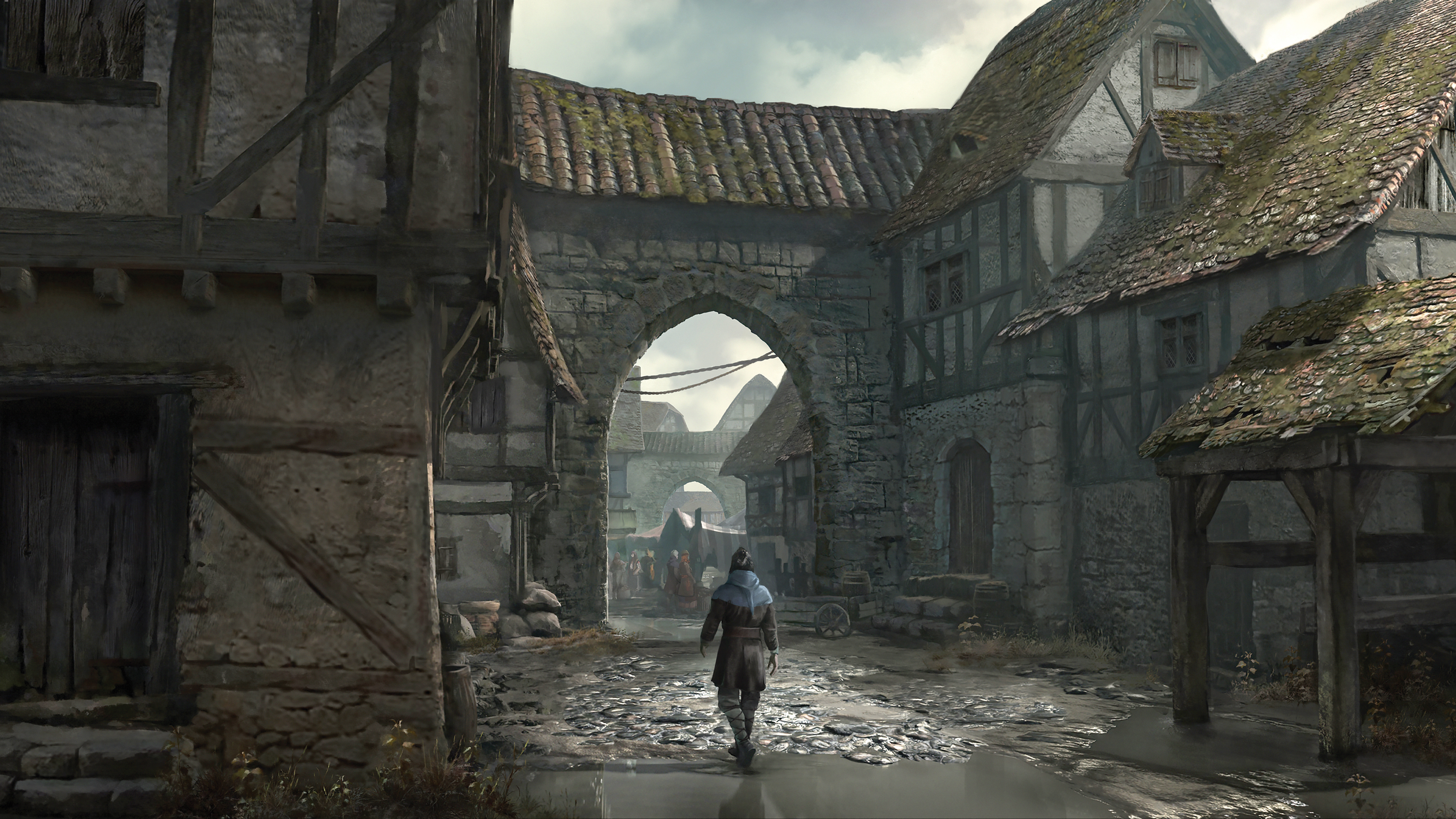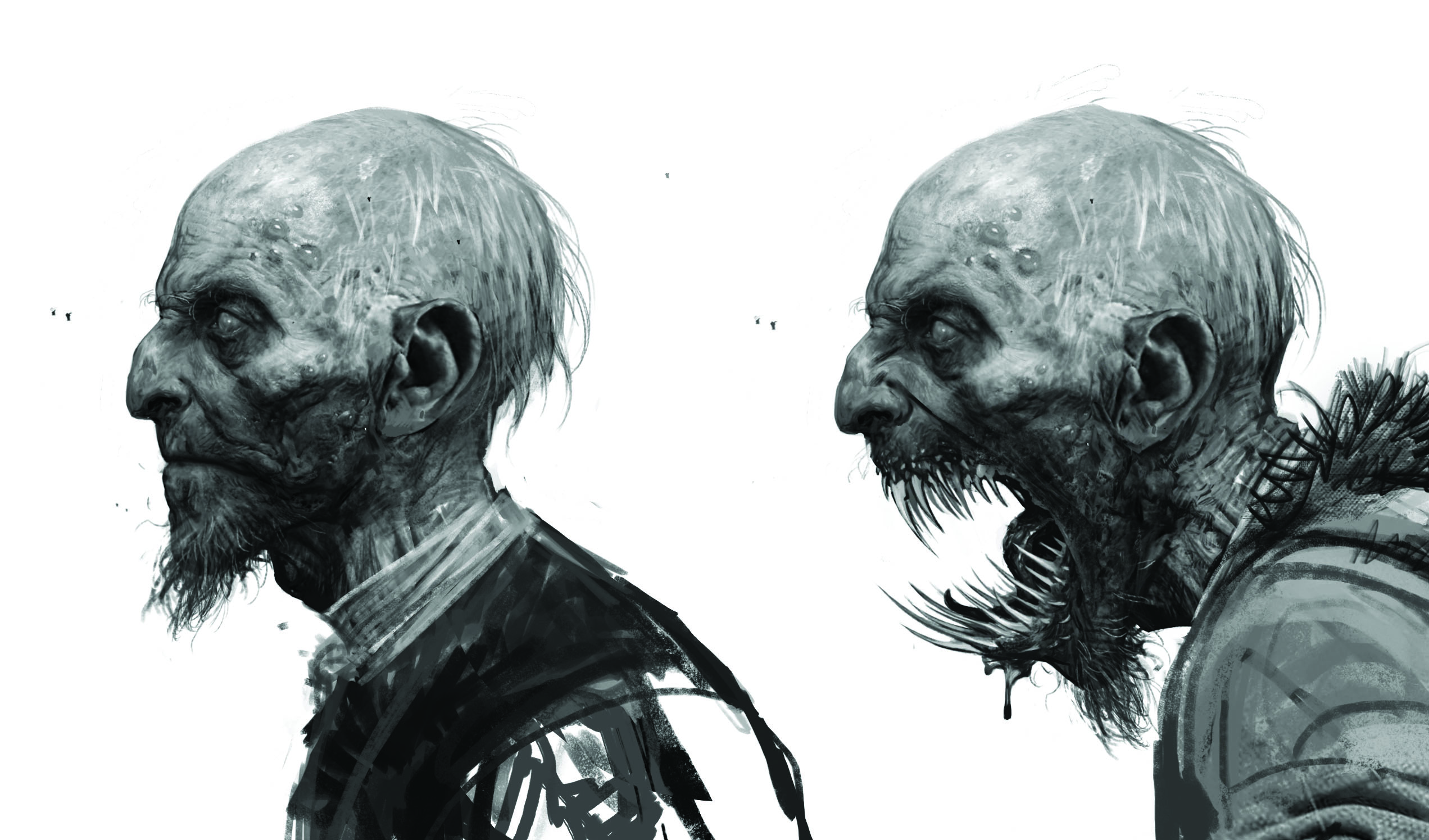For PC Gamer magazine’s upcoming The Blood of Dawnwalker issue, I flew out to Warsaw to visit developer Rebel Wolves and speak to a number of its key devs, including founder Konrad Tomaszkiewicz: Best-known for being the director of The Witcher 3, one of gaming’s greatest ever fantasy RPG experiences.
Tomaszkiewicz also worked as a co-director on Cyberpunk 2077 before leaving CDPR. The obvious question is why an established and proven director would feel the need to move on from somewhere they’d helped to such success.“I set up Rebel Wolves because I felt that I wanted to make something that is unique with my friends,” says Tomaszkiewicz. “Of course, we have a huge love of RPG games, and what has been done before in the past. [But] I feel that those things, those rules of RPG games, can be expanded and evolved. We had crazy ideas. We knew that, you know, if we wanted to make them, we needed to open our own studio, because it would be hard to convince any big company—you know, with non-IP—to change, and do something new, and do something crazy. Actually, it’s risky, because we’re doing some solutions which are new.
“And the second thing is that we have a studio where we work with the people, and among them, not like at the bigger studios where it’s harder. I felt that a smaller team is capable of doing more, because the communication inside the team, and it’s easier to speak about the vision. It’s easier to feel the creative fire, and to do something special.”

Indeed, Rebel Wolves seems to be packing serious RPG heritage in its veins, as Konrad has been joined at his new studio by multiple other former CD Projekt developers, including the game’s design director, Daniel Sadowski, as well as creative director Mateusz Tomaszkiewicz, both of which worked on the acclaimed Polish studio’s The Witcher series.
Tomaszkiewicz is now game director on Rebel Wolves’ new fantasy RPG, The Blood of Dawnwalker, which sees gamers step into the shoes of Coen, a half-human half-vampire. The basic setup sees Coen fighting back against a group of powerful vampires who have kidnapped his family, and taken over the entire Carpathian Mountains valley in which they live, the Vale Sangora.
The devs at Rebel Wolves don’t appear to be resting on their reputations, either, with the studio looking to evolve the RPG genre in some interesting ways, including a fresh ‘time as a resource’ mechanic, which links every completed quest or task to the passage of time on a day-night cycle. This plays into the game’s ‘narrative sandbox’ approach where gamers will shape their own stories in-game by choosing which quests and tasks they’re going to do (and which they are not, as they can’t do everything at the same time) in order to take-on and, hopefully, beat the vampire antagonists.

Speaking about the studio’s reasoning for introducing the time as a resource system, Tomaszkiewicz says, “when you’re playing The Witcher 3 and you know that Ciri needs help, but you decide to go play Gwent – it’s something which, you know… you feel that it’s a game, and it’s a really good game. But it’s a game. And maybe if you had some resource, and you know that maybe if you don’t go, something would happen – then your thinking about this game would be different, and maybe the immersion would be better, and maybe your emotions would be different.”
What’s important to note about The Blood of Dawnwalker’s day and night cycle is that time only passes when Coen actually completes a quest or task, not when he’s just exploring the Vale Sangora and speaking to its inhabitants. As such, the passage of time is not real time and their won’t be immediate time anxiety for the player. Where the challenge will come will be in the player determining what they’re going to do with the time they’ve got.
Source link









Add comment